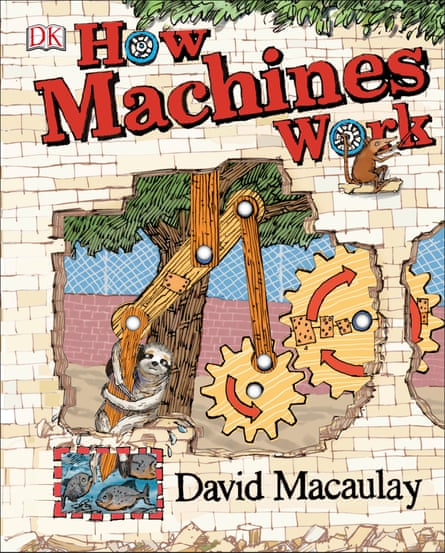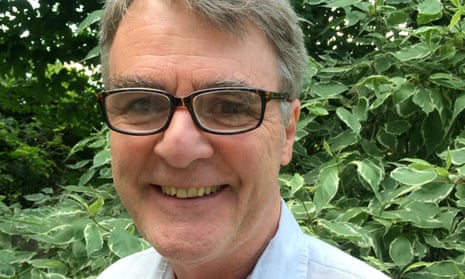The tale of an inventive sloth who outwits his zookeeper with elaborate inventions has won the Royal Society’s young people’s book prize, which champions the best science books for children.
How Machines Work by author and illustrator David Macaulay scooped the £10,000 prize at a ceremony in Cardiff on Monday afternoon. The picture book, which shows working cogs on the cover and pulleys and a seesaw inside, uses pullouts and pop-ups to explain engineering and simple mechanics.

The prize is decided by adult and child judges, the latter in a panel of school pupils and youth groups. The adult panel, which selected the shortlist, was chaired by Professor Dame Julia Higgins, emeritus professor and senior research investigator at Imperial College London; Dr Robert Pal, Royal Society university research fellow at Durham University; author Andy Seed; blogger Zoe Toft and Shirin sheikh-Bahai of the Harris Federation.
Seventy-five panels of children’s judges across the UK then picked the winner. Jenny, a nine-year-old judge, called How Machines Work “the best book I’ve read”, while her fellow judge James, who is 12, said Macaulay’s book was: “Brilliant; the best format there is with all the scientific principles wrapped up in a story.” Judge Sara, aged eight, said: “It has flaps! It’s well cool!”
Professor Higgins said Macaulay’s book “isn’t just dry pages”.
“It’s a very exciting story about a sloth that has to get somewhere and in order to get to where he’s going he has to build levers, he has to build bridges. Each of the pages is about how he designs a solution to a problem – just what an engineer must do,” she said.
Previous winners include the scientist and doctor Robert Winston and journalist Clive Gifford. The prize did not run between 2008-2010, but has been restored after an anonymous benefactor began donating prize money.
Macaulay was shortlisted alongside authors Katie Daynes, Isabel Thomas, John Farndon, Dan Green and Louie Stowell, who will each receive £2,500. This year’s Royal Society’s science book prize, which rewards authors of books for adults, went to Andrea Wulf for her biography of scientist Alexander von Humboldt, The Invention of Nature.

Comments (…)
Sign in or create your Guardian account to join the discussion